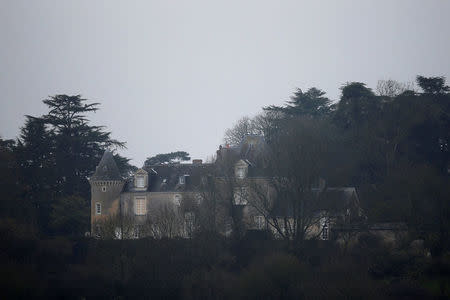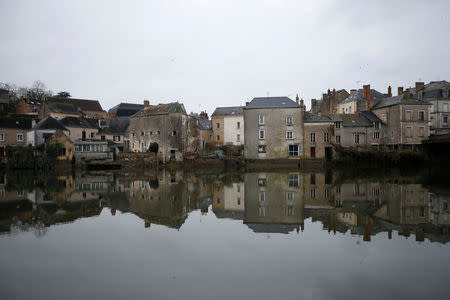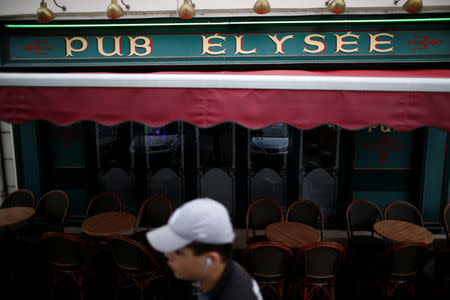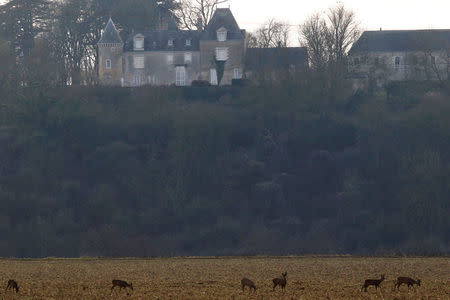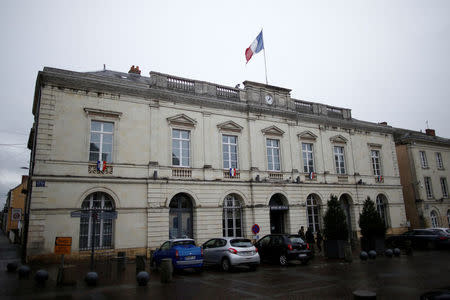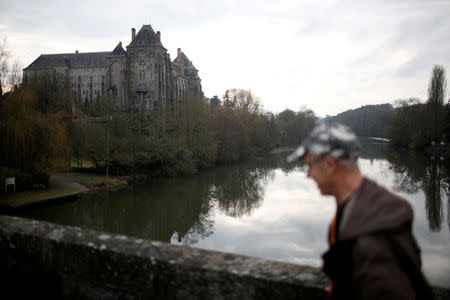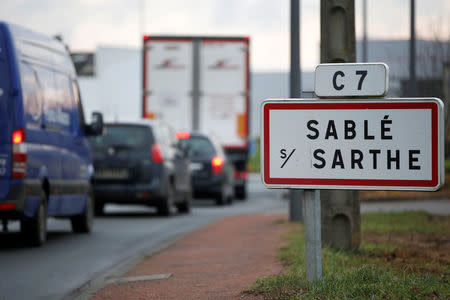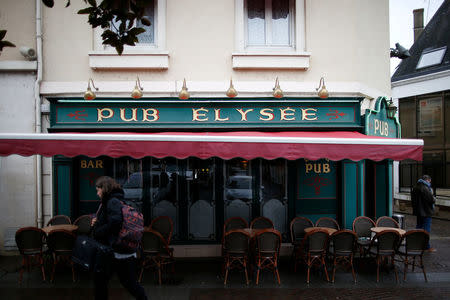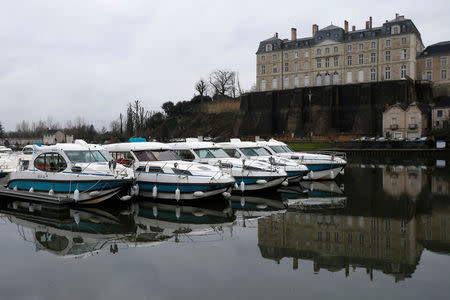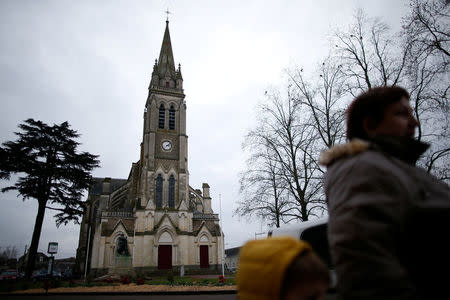In Fillon's provincial French fiefdom, locals spellbound by fake work scandal
By Richard Balmforth SABLE-SUR-SARTHE, France (Reuters) - On the main square of the northern provincial town where French presidential candidate Francois Fillon launched his political career, a branch of Credit Agricole, where he banks, stands next to a bar called Pub Elysee. The ironic imagery is hard to miss: Fillon's money nestled alongside the Elysee presidential palace that is now slipping from his grasp because of a scandal over taxpayer cash paid to his wife for work she may not have done. (Graphic - http://fingfx.thomsonreuters.com/gfx/rngs/FRANCE-ELECTION/010031D933E/index.html) Satirical weekly Le Canard Enchaine, which last week broke the story now dubbed "Penelopegate", was selling better than usual in Sable-sur-Sarthe on Wednesday. Its front page trumpeted that even larger sums - over 1 million euros - were siphoned her way than it had previously reported. Fillon, 62, has decried the reports as a slur on himself and his wife meant to torpedo his campaign. He has said his wife was paid for genuine work and that he will step down as the mainstream conservative candidate should preliminary judicial inquiries lead to a full-blown investigation. Sable-sur-Sarthe, a riverside farming community of 13,000 people, has been shaken to the core by the scandalous allegations about their most famous local family. Fillon has been Sable's pre-eminent figure since launching himself on a 30-year career in public life that led to a five-year spell as prime minister under President Nicolas Sarkozy until 2012. Solesmes is dominated by an 11th-century Benedictine abbey where the Fillons regularly attend Mass. Local newspaper reporters say the abbey's monks turned out to vote for Fillon at his Republicans party primaries in November. Now the scandal is on everyone's minds. "Francois Fillon was always someone who you could say hello to. If it's true, it's very troubling," said Michel Touchard, 74, a retired stonemason in the nearby village of Solesmes, close to the Fillons' 14th-century manor house. "It is going to give the Right a very hard knock if he pulls out (of the election race). I hope he can get out of this. We need him. We need someone who can run France properly." A woman called Agnes who would not give her surname said as she emerged from a Solesmes boulangerie with two baguette loaves that she had long been a staunch Fillon backer. "I don't know what to think now. At the beginning we were all for Fillon. Now we don't really know ... Maybe I'll abstain. I'm just a bit disgusted. I'm afraid for his campaign. I'm going to talk it all through with my husband." Fillon won the primary for the centre-right Republicans after campaigning as a rare honest politician who could coast to victory over a Left divided and deeply unpopular after five years in power, and against an anti-immigrant far right that most French voters would want to keep out of the Elysee. CAR RACING FAN, DEVOUT CATHOLIC The ex-premier, an amateur racing driver with a passion for the famed 24-hour race in nearby Le Mans that his brother runs, had been in pole position for the presidency since November. But opinion polls since the scandal exploded suggest he can no longer count on being the frontrunner. nP6N1E3000] A devout Catholic with five children from his marriage in 1980 to British-born Penelope, Fillon presented solid family values that won him powerful support from France's affluent bourgeoisie - a class much in evidence in Sarthe. "I have known them for 35 years," said Louise, a smartly-dressed Sable-sur-Sarthe woman in her 60s. "I don't know all the details but he wouldn't cheat and he wouldn't lie." As a parliamentary deputy, Fillon had stepped in and won a reduction in the period of military service her son had to serve, allowing him to go to the United States for his studies, she said. "It was a gesture that helped my son." Jean-Claude Ragaru, who worked as an aide to Fillon for 20 years in the local municipality, defended the couple's conduct. Whenever professionally he had to reach Fillon it was nearly always Penelope who took the call, he said. "I don't know how many hours she worked for him. But it is certain she worked for her husband," he said, describing them as an "irreproachable couple". But the scandal, he added, was certain to cost Fillon "several thousand votes". But Gerard Fretelliere, who as a left-wing local councillor actively opposed Fillon for 12 years, said Fillon's mistake had been not to explain the situation clearly from the start. "When Fillon launched his campaign, he said: 'I am someone who is honest, I am clean, I am pure. Then suddenly there is a doubt about his honesty and it's shocking, shocking." (Editing by Andrew Callus and Mark Heinrich)

